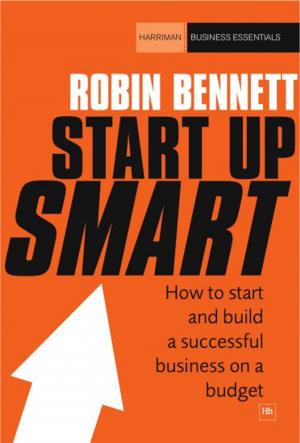Meet the People
Why businesses must engage with public opinion to manage and enhance their reputations
Business & Finance, Marketing & Sales, Public Relations, Management & Leadership, Planning & Forecasting| Author: | James Frayne | ISBN: | 9780857193506 |
| Publisher: | Harriman House | Publication: | September 9, 2013 |
| Imprint: | Harriman House | Language: | English |
| Author: | James Frayne |
| ISBN: | 9780857193506 |
| Publisher: | Harriman House |
| Publication: | September 9, 2013 |
| Imprint: | Harriman House |
| Language: | English |
A revolution has taken place in corporate communications in recent years. Democracy has arrived. The ongoing expansion of the web - and above all social media - means the public now have the power to shape the image and reputation of even the biggest businesses in giant public conversations. On social media platforms, blogs, consumer websites, web forums and comment threads, ordinary people are taking the lead in defining how businesses are seen by the outside world. The entire corporate communications model has been turned on its head. Since its inception as a recognised industry in the 1920s, corporate communications has relied on major advertising and marketing campaigns, as well as traditional media relations and public affairs, to create the desired images of businesses. In short, corporate communications was conducted by elites, amongst elites, at arms length from consumers. Now this approach lies redundant. The challenges posed by the new power of the public mean corporate communications increasingly resembles political campaigning. In this world, as in politics, businesses must put the public first. They must engage the public in the fast-moving, emotional, two-way conversation that is taking place around them. Rather than seeking to be the only voice that defines them and the issues that matter to them, businesses have to be the most influential and credible voice amongst many. They must become experts in public persuasion. In 'Meet the People', communications consultant James Frayne explains what businesses can learn from political campaigns to help them deal with these new challenges. Drawing on interviews with some of the world's most respected political consultants and employing case studies of some of the most successful campaigns down the years, Frayne reveals how the best campaigns operate as they engage public audiences and shape the public's view, and shows how businesses can implement these techniques and strategies in their corporate communications. 'Meet the People' is required reading for modern businesses that want to know how to lead the public conversation that surrounds them and understand how effective political campaigns really work.
A revolution has taken place in corporate communications in recent years. Democracy has arrived. The ongoing expansion of the web - and above all social media - means the public now have the power to shape the image and reputation of even the biggest businesses in giant public conversations. On social media platforms, blogs, consumer websites, web forums and comment threads, ordinary people are taking the lead in defining how businesses are seen by the outside world. The entire corporate communications model has been turned on its head. Since its inception as a recognised industry in the 1920s, corporate communications has relied on major advertising and marketing campaigns, as well as traditional media relations and public affairs, to create the desired images of businesses. In short, corporate communications was conducted by elites, amongst elites, at arms length from consumers. Now this approach lies redundant. The challenges posed by the new power of the public mean corporate communications increasingly resembles political campaigning. In this world, as in politics, businesses must put the public first. They must engage the public in the fast-moving, emotional, two-way conversation that is taking place around them. Rather than seeking to be the only voice that defines them and the issues that matter to them, businesses have to be the most influential and credible voice amongst many. They must become experts in public persuasion. In 'Meet the People', communications consultant James Frayne explains what businesses can learn from political campaigns to help them deal with these new challenges. Drawing on interviews with some of the world's most respected political consultants and employing case studies of some of the most successful campaigns down the years, Frayne reveals how the best campaigns operate as they engage public audiences and shape the public's view, and shows how businesses can implement these techniques and strategies in their corporate communications. 'Meet the People' is required reading for modern businesses that want to know how to lead the public conversation that surrounds them and understand how effective political campaigns really work.















